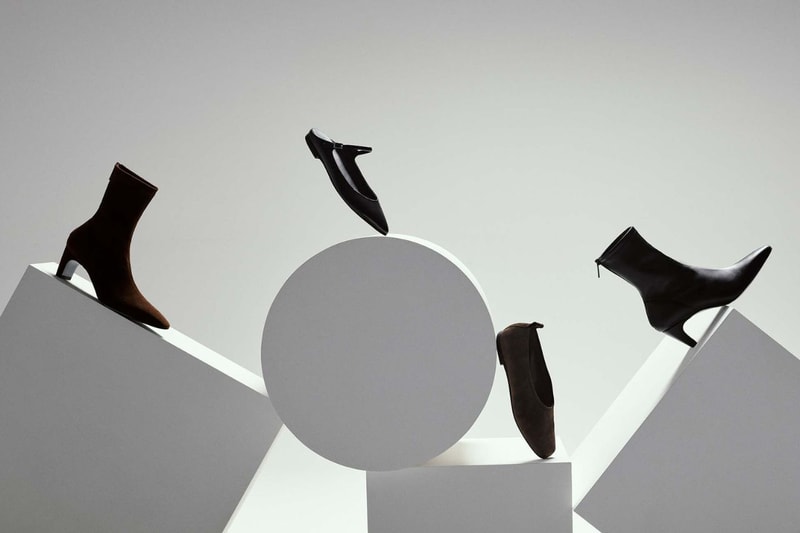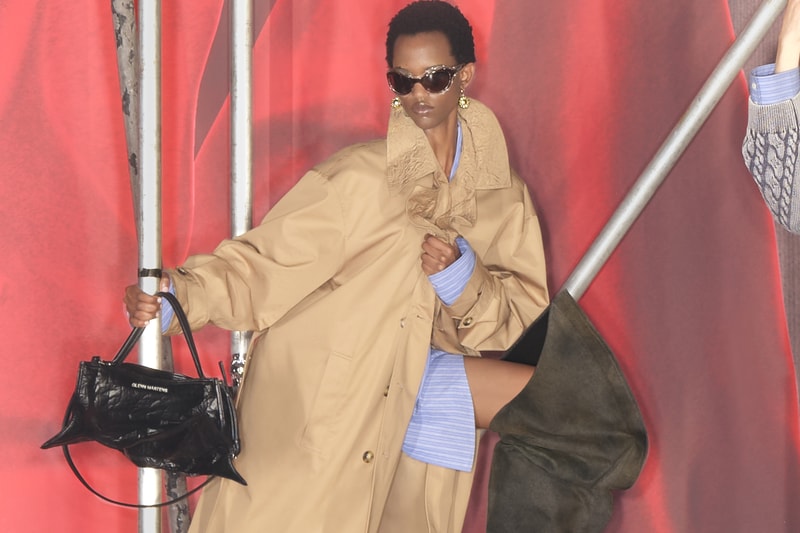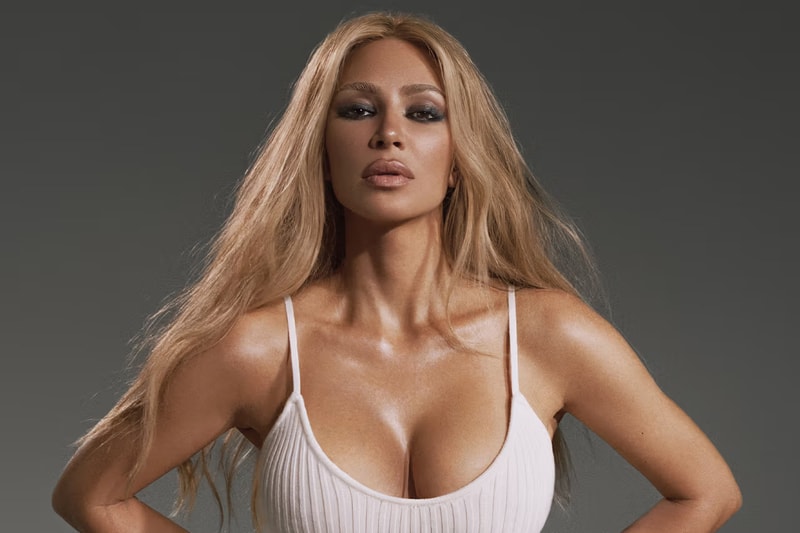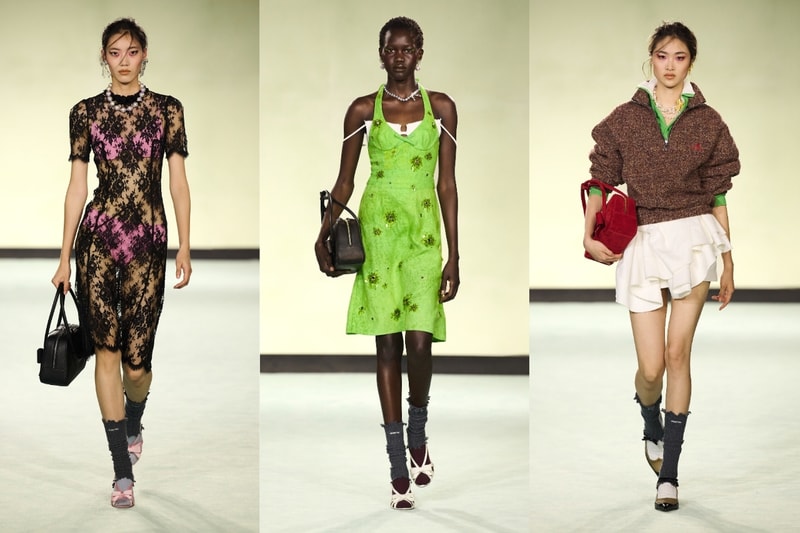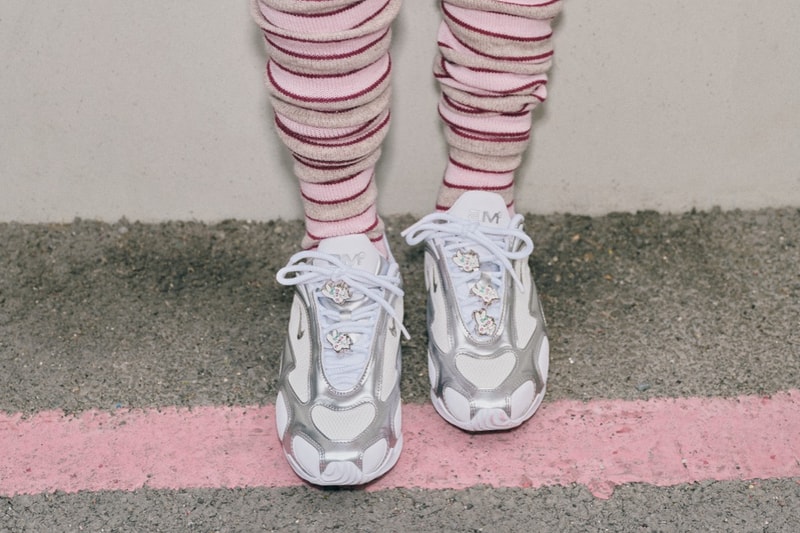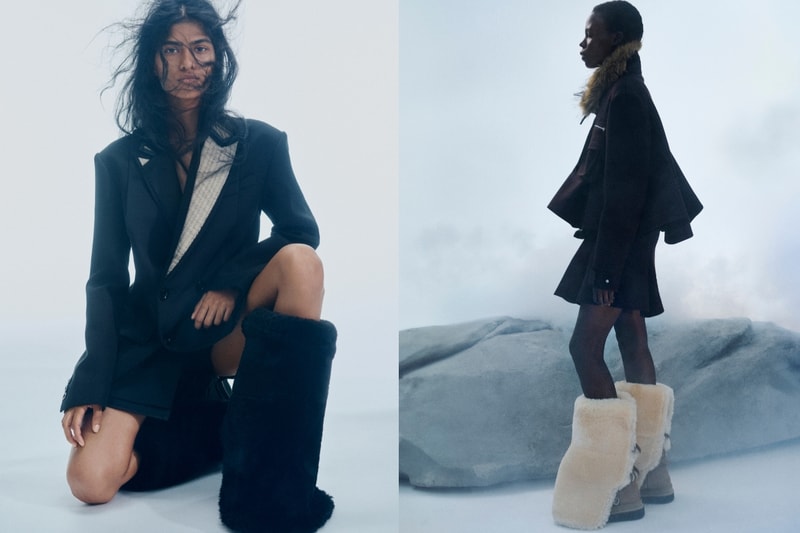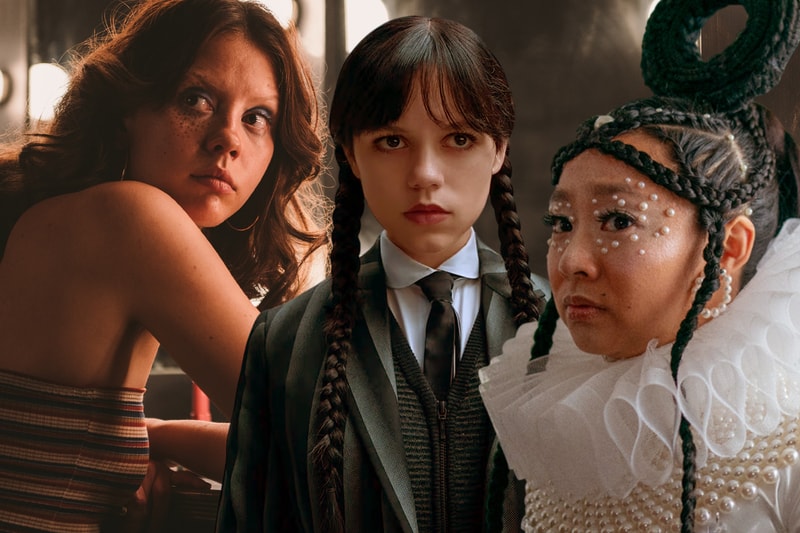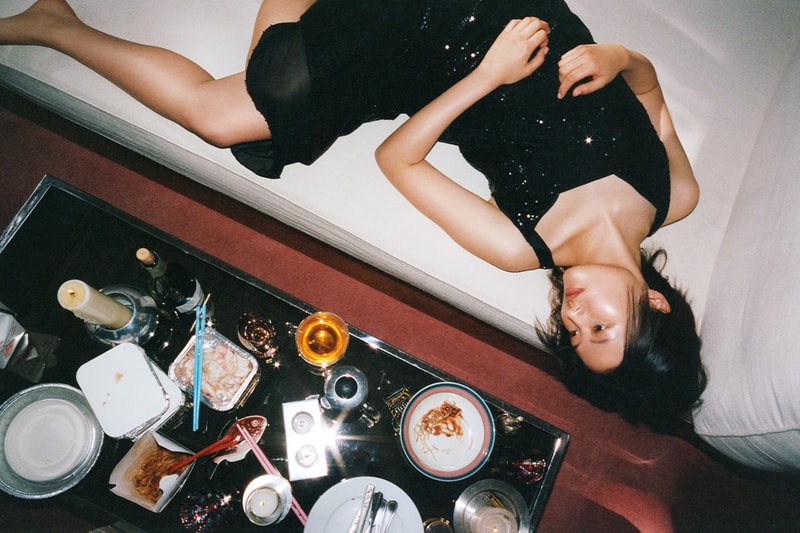Kiana Madeira Brings Intensity and Passion to Netflix's 'Fear Street'
info@hypebae.com (HYPEBAE) Fri, 02 Jul 2021 HYPEBAE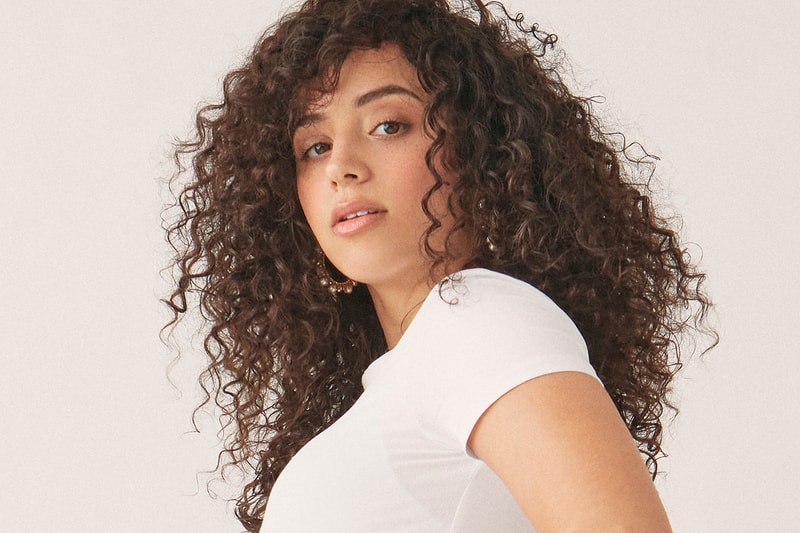
The year is 1994. A high school student by the name of Deena would go to the edge of the Earth to keep the ones that she loves safe, but the plot twist? She has to do it three times over. Coming this summer, Kiana Madeira, who you may recognize as Maureen “Moe” Truax from Netflix’s Trinkets, will lead the cast in the streaming platform’s highly anticipated horror film trilogy Fear Street. Based on the series by famed horror author R.L. Stine, each film of the trilogy will take place during a different time period: 1994, 1978 and 1966. The films will be released back-to-back each week in the span of a month as part of Netflix’s “Summer of Fear” event.
“I was definitely a Goosebumps kid. I was born in 1992 and that was the Goosebumps era,” Madeira said. She admitted that she was a huge fan of R.L. Stein since she was a child, and even shared that she read the highly nostalgic books. “I think people a little bit older than me are more familiar with Fear Street. I actually got to meet him on set and it was so cool. He's so nice. I was like, ‘Wow, you're my hero’."
HYPEBAE spoke to the Trinkets alumna about leaving her comedic chops at home, binging classic horror films to prepare for her lead role in Fear Street, and the significance of seeing more women of color in thrillers and scary movies.
The Fear Street trilogy premieres on Netflix, with the films available for streaming on July 2, July 9 and July 16 respectively.
Tell me about Fear Street. How did you feel when you secured the role?
When I got the audition, I found out that it would be a trilogy and the scripts were very cohesive. It's a story that spans over 300 years. I had never read anything like that before so immediately, I was so excited. One audition led to another, which led to another callback. Eventually, that led to chemistry read with a couple of girls, but one of them being Olivia Welch. She plays my co-star in the films.
When I found out I got the role, I was pinching myself. It was actually so incredibly surreal. From day one, I was like, “I would love to play this character.” I was excited when I get that phone call, and at the same time I was like, "Alright, time to actually do a lot of work." I felt a big responsibility taking on this character and telling the story over the span of three films, which I was excited about and kind of nervous, but in a good way.
How did you study and prepare to play your character, Deena, ahead of filming Fear Street?
I was born in 1992 so I grew up in the '90s, but Deena was a teenager in 1994, so it was a little bit different from my own personal experience. Luckily, my parents are fairly young and they had their early 20s, late teens experience during that time. I actually talked to them a lot about what their experience was like with no cell phone, growing up with the dial-up era and having pagers. I was really curious about technology during that time. They were such a great help. I also watched the movies like The Goonies, Scream, some '90s classics that these movies resemble in a way and are also super nostalgic.
In comparison to Trinkets, I can imagine that this is totally different. How would you say that the preparation and execution were different from other projects that you've been a part of?
Since my character is going on this journey throughout three films, the focus of me as an actor and Deena as a character is so intense, whereas with my character Moe in Trinkets, it's different being in an episodic show. [Moe] was able to have fun a lot of the times, and be the point of humor a lot of times in serious situations, whereas Deena is extremely passionate, intense and very heroic. I felt that responsibility as an actor to bring that focus and intensity to my work. Hopefully, that shines through Deena as a girl.
It was different because I wasn't the comedic relief. There are other characters who are so amazing in Fear Street who are the comedic relief at points. This character was at the forefront of dealing with all the craziness that happens. It wasn't an opportunity for me to bring my comedic chops. They actually had to bring my intensity in that way, which was new for me and really exciting.
Your character Deena is described as “someone who is willing to go to great lengths to protect the people she loves.” How can you relate to this?
I feel pretty much the exact same way. I'm a middle child. In my mind, if you're the oldest child, you would have that sense of being a protector, which my older brother totally does. For some reason, because of the way that I am wired, I take on so much weight with my family, my siblings my fiancé. I'm almost like a mother hen sometimes. I just feel like I want to do it all and I don't often ask for help. I just take on so much responsibility by making sure everyone's okay.
I live away from my family now -- they live in Toronto. I text everyone. Every day, I email my mom and I make sure everyone's good. I'm constantly praying for their well-being. I can relate to Deena in that way as I don't really have a super laid-back approach. I'm kind of hands-on and actually would take action to make sure that everyone in my life is good, and I would say Deena is the same way.
Now that you're diving into the horror and suspense genre, have you seen over the years how representation for Black women and women of color in horror films has changed?
I think it's definitely improving. I still feel like there're a ways to go, but even early on in my career, I have done some horror back in Canada. With the other roles that I've done, it was a little bit hard for the industry at the time to see me as a leading woman, being a woman of color. I was often placed in roles that were the best friend to the Caucasian lead, and I experienced that for quite a bit early on in my career.
Even in the last couple of years, being in leading roles has felt like such a weight off my shoulders in a way. I really do feel like the industry is heading in the right direction in that sense. I'm excited and I feel hopeful that we're going to continue in this direction. There's so much room in our industry for women of color, people of color, minorities to be at the forefront of stories. We have so much experience in our history, our roots and our blood to show. I'm looking forward to everything that we have to bring and actually being highlighted on-screen in our industry.

What are your hopes for your career as you continue to grow as an actor?
I hope that I get to continue to tell stories that evoke change and emotion in audiences. I feel like we live in a society that’s so technology-based that it's very easy to become emotionally numb. I hope that as an artist, I can portray characters that people can relate to on-screen and feel when they watch, because it's important to feel. It’s important to address things that we're going through in a mental sense, in a spiritual sense and in an emotional sense. I hope that I can continue to be a catalyst for people to address what they're going through in life and be a sense of cathartic release.
How have you grown in your acting career from when you first started to now?
I've grown tremendously, and I think I still have time. That's the thing about acting -- it's really the art of living. As I grow through different stages in my life, I feel like I've changed as an artist and that's really what I want to do. I hope to have children one day, and I think that being a mother will change how I am as an actor, being a wife will change how I am as an actor, and [so will] all the stages that I'm going through in life.
I started acting when I was 10. I was bringing my 10-year-old experience and lens to my work. When you start out as an actor, it takes a while, at least for me and in my experience, to let your body be an instrument and tell stories. I think I'm at a place now where I do feel comfortable in my body, my voice and my essence like a human. I'm excited to tell challenging stories. I'm in a place where I want to just ride to the occasion. I want to be challenged with the work that I do.
If you were to be stuck in a horror film, what would you say are three absolute dos and three absolute don'ts for survival?
Communicate with the people you're with. I would also say don't sleep alone -- that just sounds like it would be a bad idea. Avoid taking showers as much as possible. You know when you're in horror films when the mirrors are all foggy, because he took a shower and he’s so vulnerable? I would not do that. No way.
Don't leave your house at nighttime. Just wait until daytime and figure everything out. I think it would be a lot better. Have extra batteries and if you're in a horror film that happens to be in modern times, have chargers and have charged phones. Please make sure your technology is on point. For me, I’d wear my cross. I feel like if I were to have my cross on my neck, I would just feel like it gives me some extra powers.
D’Shonda Brown is a freelance culture journalist, public speaker and mental health advocate based in Brooklyn, New York with a passion for mental health, social justice and uplifting the Black community through her writing. As a mental health advocate and suicide attempt survivor, in 2019, D’Shonda became Mental Health First Aid Certified for adults and children, and graduated from the Advocacy Ambassador Program by National Alliance on Mental Illness. D’Shonda is a proud Spelman College graduate and has interviewed notable names from Angela Rye and Soledad O’Brien to Chloe x Halle and Justine Skye.
You can connect with D’Shonda on her Instagram and website.
